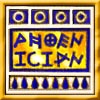
The Kothirat, or Kathirat, are a group of Phoenician marriage and childbirth Goddesses, Who bring auspicious beginnings. Their usual number is seven, and the name means "the Wise Goddesses", or "the Skillful Ones". They preside over and help to plan weddings and the proper rituals of marriage, oversee conception and good sex, and protect the mother and child during birth. They can grant children to childless couples through prayer and offerings, and were invoked to bless weddings. The Kothirat are associated with the new or crescent moon, likely as a symbol of lucky beginnings and entering into a new stage of life, such as a wedding or the birth of a child, and with birds, especially swallows. They are also named as the daughters of the Morning Star, which would link them to Anat or Ashtart, both Goddesses of the planet Venus. According to a late Greek text, the seven daughters of El and Ashtart are called the Artemides. As Artemis is strongly associated with childbirth, it is likely that these seven sisters are the Kothirat, and therefore the daughters of Ashtart and the God El. In the Legend of Dana'el, one of the myth texts of ancient Ugarit, a Canaanite city-state of Syria, King Dana'el has no sons, and is in mourning because of this. He makes sacrifices to the Gods, and on the seventh day the God El tells him He will grant his wish. Dana'el celebrates and then makes further offerings to the Kothirat, including an ox, for the next six days. The Goddesses remain in his presence during that time, and on the seventh day depart; in time, Dana'el's wife Danatay gives birth to the hero Aqhat. In Dana'el and Danatay's story the Kothirat are called "those skilled in the pleasure of the bed of conception", indicating that their "skill" or "wisdom" includes not only the conception of a child, but the sexual joys that are had in the process! The Kothirat also play a role in the poem of the marriage of Nikkal, a fruit and fertility Goddess, to Yarikh, the God of the moon (though They are also sometimes taken to be the daughters of Yarikh, through their association with the crescent moon). They are invoked to bless Nikkal and Yarikh with a son, and later They bless the marriage of the girl Prbkht or Perbakhat (which, alternately, may be a name of one of the Kothirat Herself). Several lines in the Wedding of Yarikh and Nikkal seem to list the names of the Kothirat, though differing translators read these lines in varying ways. If they are names (and not all are translatable, though most seem to refer to food and nourishment), then they are called: Thillukhuha, Mulugu-hiya, Thatiqatu, Baqi'atu, Taqu'atu, Perubakhthi, and Damiqtu ("the Fair One"), the youngest. In their role as bird Goddesses They are sometimes considered divine singers or performers. The Kothirat share many aspects with Hathor, the Egyptian Goddess of Love and Beauty, who is also associated with celebration and childbirth; seven Hathors were said to attend the birth of a child and foretell its destiny, much like the thirteen faery women of the Sleeping Beauty tale. Also called: Senanot, "the Bird-Like Ones" or "the Swallows"; "Daughters of Joyous Song"; "The Swallow-like Daughters of the Crescent Moon". |
|
|



